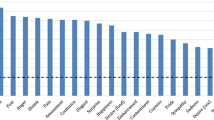Abstract
A number of statements prescribe behavior: apothegms, maxims, proverbs, instructions, and so on. These differing guides to conduct present varieties of the dictionary definition of “rules.” The term “rules” thus defines a category of language usage. Such a term, and its derivative, “rule-governed,” does not address a controlling relation in the analysis of verbal behavior. The prevailing confounding of a category of language with a category of verbal behavior appears related to a lack of understanding as to what distinguishes verbal behavior from other behavior. Verbal behavior is a behavior-behavior relation in which events are contacted through the mediation of another organism’s behavior specifically shaped for such mediation by a verbal community. It contrasts with behavior that contacts events directly, and shaped directly by the features of those events. Thus we may distinguish between two large classes of behavior by whether it is behavior controlled by events, or behavior controlled verbally. However, the functional controls operative with both classes of behavior do not differ.
Similar content being viewed by others
References
Cautela, J. R. & Kearney, A. J. (in press). Overview of behavioral treatment. In M. E. Those, B. A. Edelstein, & M. Hersen (Eds.), Handbook of outpatient treatment of adults. New York: Plenum.
Goldiamond, I. (1962). Perception. In A. J. Bachrach (Ed.), Experimental foundations of clinical psychology (pp. 280–343). New York: Basic Books.
Grnbaum, A. (1987/1988, Winter). Secular humanism in American political culture. Free Inquiry, 8, 21–25.
Hekmet, H. (1972). The role of imagination in semantic desensitization. Behavior Therapy, 3, 223–231.
Juliá, P. (1983). Explanatory models in linquistics. Princeton NJ: Princeton University Press.
Lee, V.L. (1981). Terminological and conceptual revision in the experimental analysis of language development: Why. Behaviorism 9, 25–54.
Sidman, M. (1986). Functional analysis of emergent verbal classes. In T. Thompson & M. D. Zeiler (Eds.), Analysis and integration of behavioral units (pp. 213–245). Hillsdale, NJ: Erlbaum.
Sidman, M. & Cresson, O. (1973). Reading and cross-modal transfer of stimulus equivalences in severe retardation. American Journal of Mental Deficiency, 77, 515–523.
Sidman, M. & Tailby, W (1982). Conditional discrimination vs. matching to sample: An expansion of the testing paradigm. Journal of the Experimental Analysis of Behavior, 37, 5–22.
Skinner, B. F. (1961). The concept of the reflex in the description of behavior. In B.F. Skinner (Ed.), Cumulative record, 3rd ed. (429–457). New York: Appleton-Century-Crofts.
Skinner, B. F. (1957). Verbal behavior. New York: Appleton-Century-Crofts.
Skinner, B. F. (in press). Introductory remarks. In S. Hayes, (Ed.) Rule-governed behavior: Cognition, contingencies, and instructional control. New York: Plenum.
Spradlin, J. E., Cotter, V. W, & Baxley, N. (1973). Establishing a conditional discrimination without direct training: A study of transfer with retarded adolescents. American Journal of Mental Deficiency, 5, 556–566.
Stoddard, L. T., Sidman, M., & Brady, J. V. (1988). Fixed interval and fixed ratio schedules with human subjects. The Analysis of Verbal Behavior, 6, 33–44.
Sundberg, M.L. (1987). Teaching language to the developmentally disabled: A course manual. Prince George, B.C.: College of New Caledonia Press.
Vargas, E. A. (1986). Intraverbal behavior. In L.J. Parrott & P.N. Chase (Eds.), Psychological aspects of language (pp. 128–151). Springfield, IL: Charles C. Thomas.
Vargas, E. A. (in press). Verbal behavior and artificial intelligence. In L.J. Parrott, & P.N. Chase, (Eds.), Verbal relations. Hillsdale, NJ: Erlbaum.
Wilson, E. O. (1975). Sociobiology: The new synthesis. Cambridge, Massachusetts: The Belknap Press of Harvard University Press.
Author information
Authors and Affiliations
Additional information
I would like to thank Guy Bruce, Barbara Kaminski, Ted Hoch, Lawrence Fraley, Albert Kearney, and Julie Vargas, for a reading of this manuscript in draft.
Rights and permissions
About this article
Cite this article
Vargas, E.A. Verbally-governed and event-governed behavior. Analysis Verbal Behav 6, 11–22 (1988). https://doi.org/10.1007/BF03392825
Published:
Issue Date:
DOI: https://doi.org/10.1007/BF03392825




